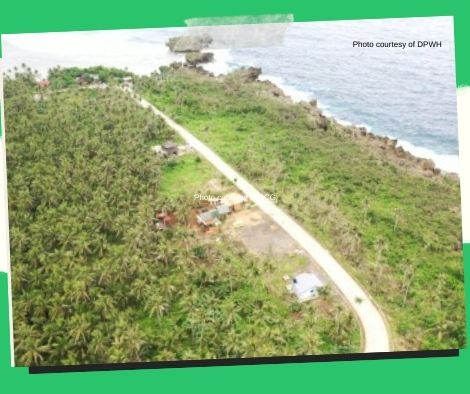
PBBM promises to build more infrastructure to improve the lives of Filipinos.
According to President Ferdinand R. Marcos Jr., the government owes it to the Filipino people to construct important roads and infrastructure that will encourage interconnectivity, ease traffic, speed up travel, and foster progress and social change.
He said this after he saw the signing of two contracts on Thursday for the Metro Manila Subway’s Contract Packages 102 (CP102) and 103, which will pay for the civil works of four stations (CP103).
After the contracts were signed, Marcos addressed the crowd, giving commuters in particular reassurance that the government will work to improve the nation’s public transit infrastructure.
We owe it to the Filipino people, added Marcos, to construct important thoroughfares and other vital infrastructure that will not only catalyze development and social transformation but also foster interconnectedness, relieve traffic, and cut down on travel time.
Let me tell you that the government is still committed to making the most of its resources in order to pursue even more ambitious projects that will benefit Filipinos across the nation, he continued.
Additionally, he encouraged the Department of Transportation (DOTr) to make sure that all current subway projects are implemented faithfully and smoothly.
The signing of these contract bundles, according to Marcos, “clearly demonstrates this administration’s commitment to pursuing major infrastructure projects that will encourage growth and revive the economy.”
In the meantime, Marcos expressed gratitude to Japan for working with the Philippines on what he called an “important infrastructure development project.”
Marcos told visitors at the Malacanang Palace, “The Philippines wishes to one day replicate Japan for having a very effective rail transit system.
The Japan International Cooperation Agency (JICA), which provided funding to support the implementation of CP102 and CP103, also received his gratitude.
“I thank you not just for this particular initiative, but also for supporting the growth of the Philippines for the past 50 years through the JICA. Particularly with regard to our agricultural operations and infrastructural projects, he remarked.
He also thanked Sumitomo Mitsui Construction and the Nishimatsu-DMCI Joint Venture for cooperating closely with the Philippines to see that these contract packages were completed.
The joint venture between Nishimatsu Construction Co., Ltd. and D.M. received CP102, a contract for roughly PHP21 billion. Consunji Inc (DMCI), whereas Sumitomo Mitsui Construction Co., Ltd. received CP103, a contract for roughly PHP28 billion.
The Quezon Avenue Station (placed inside the former Manila Seedling Bank near EDSA and Quezon Avenue) and the East Avenue Station (along V. Luna Avenue), as well as the connecting tunnels, are part of the CP102 project.
Anonas Station (in Barangay Project 4, Quezon City) and Camp Aguinaldo Station (inside Camp Aguinaldo), as well as the connecting tunnels, are being built as part of CP103. The Light Rail Transit Line 2 (LRT-2) Anonas Station will have a connection with the Anonas Subway Station.
Employment and other possibilities
The subway projects, according to Marcos, will not only facilitate the movement of people, products, and services within Metro Manila, but they will also provide jobs and opportunities for Filipinos.
The implementation of the civil works under Contract Packages 102 and 103 alone is expected to generate thousands of jobs and possibilities for numerous Filipinos, according to Marcos. “Even before it begins its operations, it is already set to yield many fruits,” he said.
From as far north as Valenzuela City to as far south as Paranaque City, the project is anticipated to benefit more than half a million passengers daily once it is operational.
He remarked, “We aim to lessen the horrible sight of driving home at midnight down EDSA and still seeing people waiting for the bus.
Additionally, the project is anticipated to cut the time required to travel from Quezon City to Pasay from one hour and thirty minutes to just 35 minutes.
“That is a benefit that the subway will offer. They are aware that they can always travel to the metro station and that a train will arrive soon. Even while the reduced journey time is crucial, its main purpose is to lessen the suspense around our return home. We’ll lessen the horrific accounts of parents who no longer see their kids because they go home at 1:30 in the morning and they’re asleep. They had to get up at 4 a.m. to board the bus again and navigate the traffic on the way back to work. The quality of life in the city should improve dramatically as a result of the subway and all of our public transportation networks, he continued.
Save/Share this story with QR CODE
Disclaimer
This article is for informational purposes only and does not constitute endorsement of any specific technologies or methodologies and financial advice or endorsement of any specific products or services.
📩 Need to get in touch?
Feel free to Email Us for comments, suggestions, reviews, or anything else.
We appreciate your reading. 😊Simple Ways To Say Thanks & Support Us:
1.) ❤️GIVE A TIP. Send a small donation thru Paypal😊❤️
Your DONATION will be used to fund and maintain NEXTGENDAY.com
Subscribers in the Philippines can make donations to mobile number 0917 906 3081, thru GCash.
3.) 🛒 BUY or SIGN UP to our AFFILIATE PARTNERS.
4.) 👍 Give this news article a THUMBS UP, and Leave a Comment (at Least Five Words).
AFFILIATE PARTNERS

World Class Nutritional Supplements - Buy Highest Quality Products, Purest Most Healthy Ingredients, Direct to your Door! Up to 90% OFF.
Join LiveGood Today - A company created to satisfy the world's most demanding leaders and entrepreneurs, with the best compensation plan today.



 Business Technology, Finance Technology & Information Technology
Business Technology, Finance Technology & Information Technology




